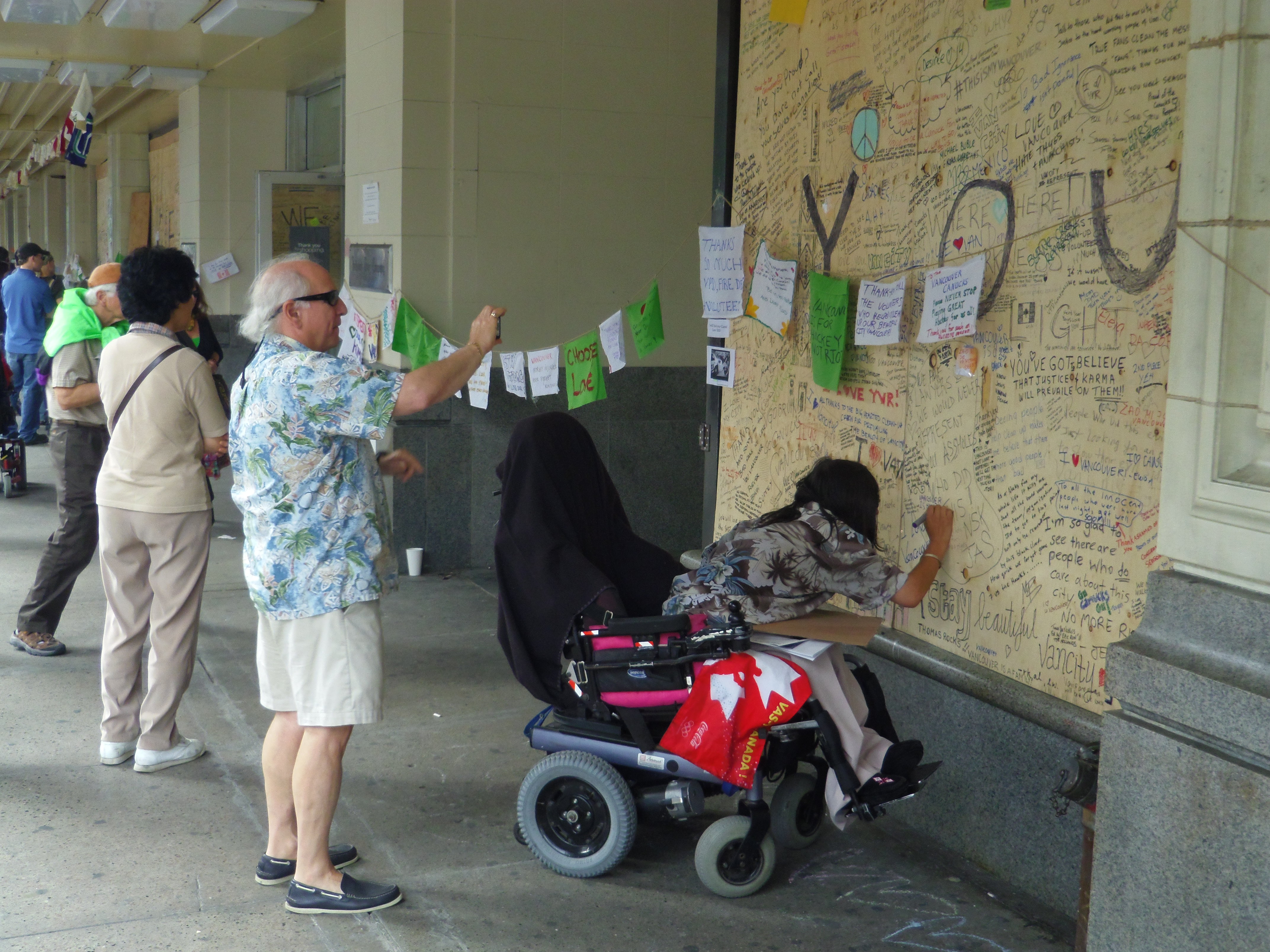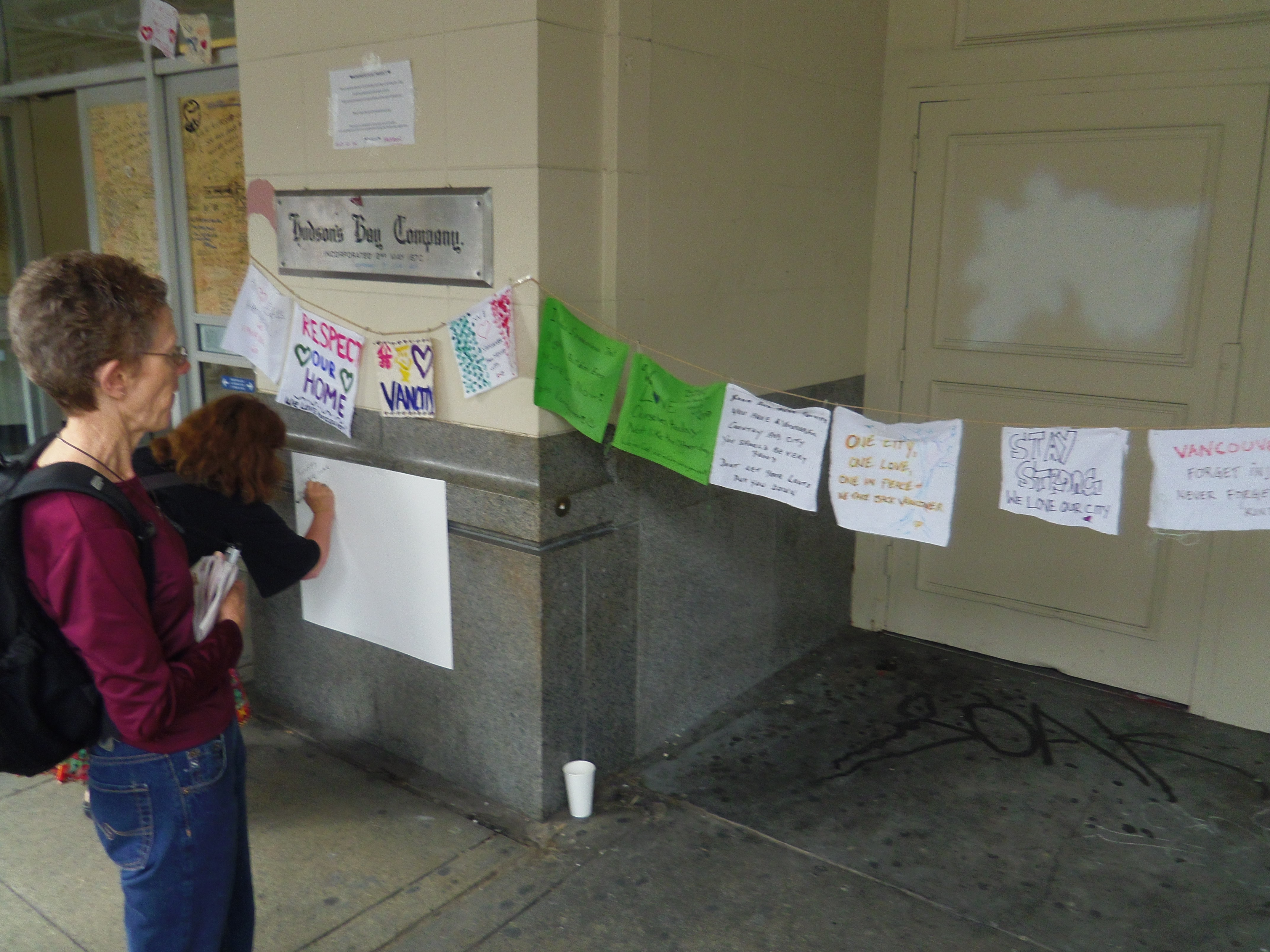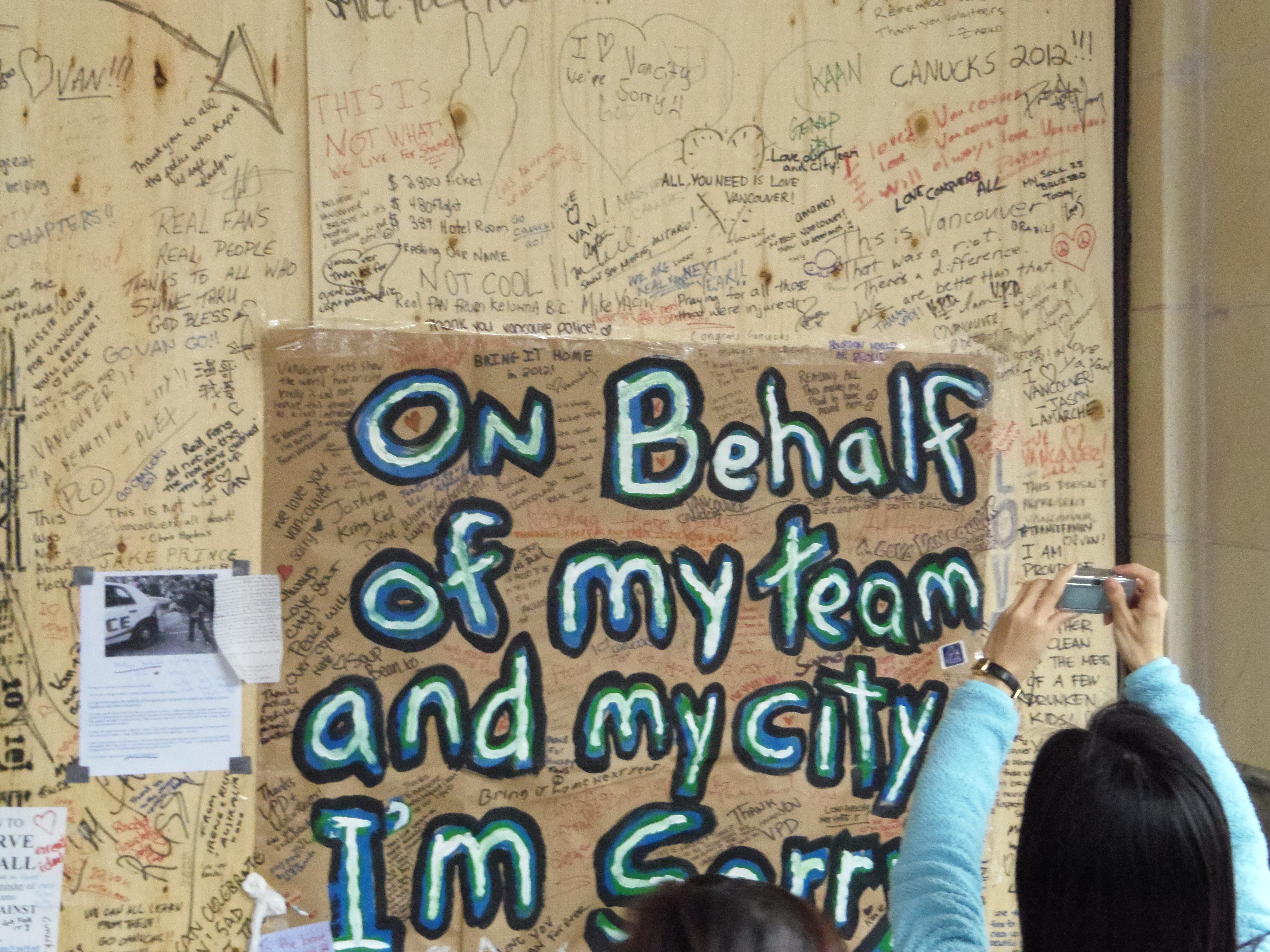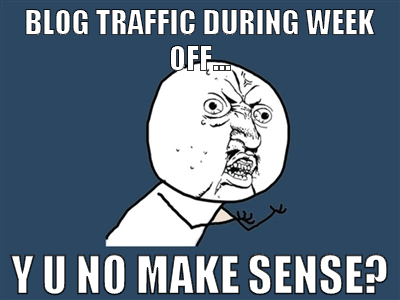I have a difficult relationship with police officers. First of all, I recognize that they are tools of the state, which has its own plusses and minuses. When the goals of the state are bound to the benefit and protection of the people, then a strong police presence is a good thing. We saw this in last week’s riots in Vancouver – police were more interested in protecting people and minimizing harm and loss of life than they were concerned about protecting private property. However, when the will of the state is opposed to the welfare of the people, police have carte blanche to abuse civil rights and become an essentially-unchecked force of oppression. We saw this at the G8/G20 protests in Toronto – the legitimate right of people to voice opposition was met with boots and truncheons.
The second part of my cop conundrum comes from the fact that police officers are still human beings, which also has its negative and positive aspects. Individual police officers are capable of great compassion, discretion and empathy. I remember during the Olympics seeing smiling police officers talking to enthusiastic tourists and locals, joking and posing for pictures. I’ve had several positive interactions with police officers where they have revealed themselves to be human behind the badge. Then again, being human means that they have all the failings of individuals (pettiness, panicked responses to threats, abuse of power), and demonstrate the mean stupidity of groups. A reader sent me a story that I think illustrates how fraught these conundrums are particularly well:
Chris Cochrane, an entertainer who goes by the name Elle Noir, is recovering from a gunshot wound to her right arm. She said her attackers yelled homophobic slurs as she was hit with gunfire at her Fairview apartment early Tuesday. She said she believes they intended to kill her.
“They were yelling, ‘Tranny faggot, open the door, let us in, let us in,’ which leads me to believe they knew who I was. I’m in a second-floor apartment. You know, you have to have a security key to get into the building. Obviously it was 100 per cent hatred.”
So we have the victim’s statement, that armed men shot through her front door with handguns and a shotgun(!) after accosting her verbally. There was no reason for the intruders to pick that apartment at random, since there was no drug activity. There is a long and sordid history of violent assault against transpeople (that is, people who identify as a sex other than the one they were born into – someone please let me know if I worded that incorrectly), and this has all the hallmarks of a hate crime.
The police reaction?
Halifax Regional Police interviewed Cochrane on Wednesday. After speaking with witnesses, investigators doubt her claim that the shooting was a hate crime, said a police spokesman. “We believe this particular unit at least — while not saying this particular victim — was targeted specifically,” said Const. Brian Palmeter.
“Certainly we don’t believe this was a hate crime based on the information that we have so far… There may have been other reasons at play why this might have occurred.” Palmeter refused to elaborate on what those reasons might be.
And immediately the skepti-shields go up. Police would like us to believe that a group of armed men broke into a building, targeted the apartment of a publicly-transsexual person and shot their way in. They did this, according to police, for reasons that have nothing to do with the gender identity of the inhabitant. To persuade us of this highly dubious set of circumstances, police are offering us the iron-clad reassurance of “there may have been other reasons at play”.
It seems to me that there are two things that could potentially be happening here. The first comes from my cynical side: Halifax police aren’t interested in investigating a hate crime. Crimes against transpeople often go unreported and poorly-investigated (I offer no evidence for this assertion – it is based on the testimony of every transperson and gender equality speaker I have ever heard/read). It is trivially easy for the Halifax police to sweep the motivation for this crime under the rug, especially since it happened in an area known for drug involvement. The police force may be acting like a person – allowing their biases and transphobia to bubble to the surface in such a way as to preclude Ms. Cochrane from seeing justice.
The second possibility I can see is that Ms. Cochrane is mistaken about the nature of her assault. She lives with a roommate – perhaps the roommate was involved in the drug trade unbeknownst to Chris herself. Maybe she misheard what the attackers said at the door – hearing “tranny faggot” in her panic when something else entirely was said. The police are suggesting another option but are being intentionally vague (which is their usual way of doing things when evidence collection is ongoing) – maybe the neighbours are privy to some knowledge that Chris herself isn’t, something perhaps to do with her roommate.
Regardless of what the reason for the cagey response from police, this kind of reaction sends a chilling message to transsexual and transgender people living in Halifax and elsewhere: despite the fact that you are more victimized than cissexual people, police will absolutely refuse to take that fact into account. At the very least, Halifax police could have said “we are concerned about the hate component, and even though at this moment we don’t have evidence to suggest hate was a factor, we are cognizant of the fact that transpeople are singled out for special treatment by their assailants, and so we will give the matter our own form of special treatment.”
I am curious to see how this whole story shakes out.
Like this article? Follow me on Twitter!





